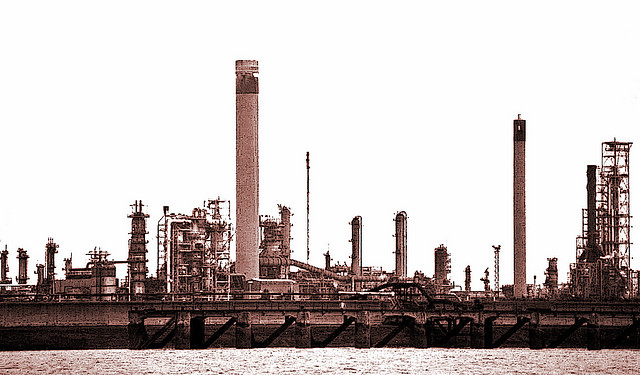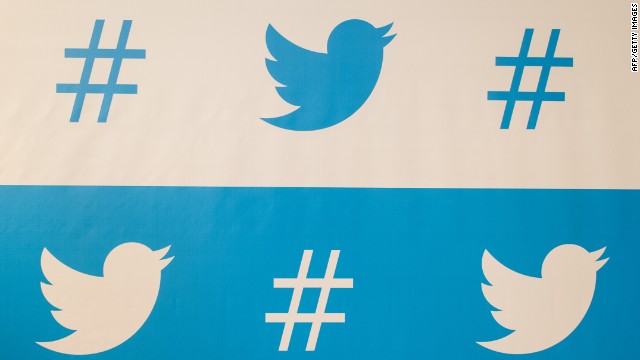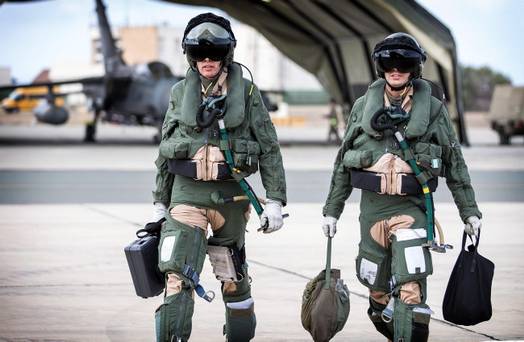[captionpix align=”left” theme=”elegant” width=”320″ imgsrc=” http://rt.com/files/politics/iran-sanctions-russia-un-921/mahmoud-iran-natanz-kms.n.jpg ” captiontext=” EU and US anxiety mounts over Iran’s nuclear program.”]
Following the much-anticipated Baghdad talks on May 23, P5+1 states (The United States, France, China, Russia, Great Britain and Germany) failed to reach substantive agreements with Iran regarding its nuclear program. At stake are not just steadily deteriorating relations between the Western powers and Iran, but significant economic ramifications that are festering in the anxiety of stalled deliberations.
The upcoming restrictions on maritime insurance dated for July 1, are encouraging a large exodus of buyers from Iran’s crude oil market. They fear they will be unable to transport their products without risk coverage or the ability to secure financial transactions through the interbank system, SWIFT.
With oil output sinking to its lowest levels in 20 years, Tehran is reported to have already lost more than $10 billion in revenues this year. This is a decrease of 38%, with over 35 million barrels of crude oil anchored in the Gulf. Oil exports constitute approximately 80% of Iran’s exports and 70% of the government’s revenues.
“This is an act of economic warfare. The sanctions are having a big effect in cumulative terms: Iran is being locked out of the global financial system,” stated Mehdi Varzi, a former official at the National Iranian Oil Co. Nevertheless, with decades of experience combating sanctions, Iran is not likely to go down without a fight.
The Western Anchor on Iranian Oil Tankers
On January 23, the coordinated EU and US sanctions on Iran’s oil exports market were also extended to include maritime insurance providers. This strategy, which was quickly echoed a month later within a US Senate Banking Committee Bill, is believed to significantly debilitate Iran’s capacity to continue trading oil in the global marketplace.
Unlike previous rounds of sanctions, in which Iran was able to exploit various loopholes to continue trading its oil, there is Western confidence in the comprehensiveness of these new measures. This lies in the fact that 95% of the world’s oil tanker fleet is insured by companies operating in Europe, and thus directly within the jurisdiction of their sanctions.
[captionpix align=”left” theme=”elegant” width=”320″ imgsrc=” http://irancorner.files.wordpress.com/2012/05/spiegel-iran-oil-embargo1.jpg” captiontext=” As trading partners decrease imports, 35 million barrels of Iranian crude oil are anchored in the Gulf.”]
Under European law, all risk management providers now stand to be subject to severe penalties if they continue insuring any fleet distributing Iranian oil. Moreover, as part of the International Conventions on Maritime Trade, ports are proscribed from docking or facilitating ships without robust insurance due to the extensive environmental and safety liabilities posed by petroleum operations.
Iran could previously circumvent EU and US sanctions on its oil exports by increasing trade through partnerships with non-Western buyers and suppliers. Now countries such as South Korea and Japan will be entirely prevented from operating their vessels in the absence of European-based, maritime insurance. According to one anonymous buyer, “the bottleneck is insurance. If that’s not settled, we will no longer be able to transport oil.”
A SWIFT Blow
As another display of the breadth and disciplinary power of the recent sanctions regime, in March 2012 the Brussels-based global financial service, SWIFT (Society for Worldwide Interbank Financial Telecommunication) effectively cut-off service to Iranian banks. The company’s decision reflects the prohibition on any business listed within an EU member state from carrying out electronic transactions with any one of 25 designated Iranian banks.
[captionpix align=”left” theme=”elegant” width=”320″ imgsrc=” http://womennewsnetwork.net/wp-content/uploads/2011/11/015-IRAN-market-2006-Image-CordeliaPersen.jpg” captiontext=” Under Western sanctions, Iran’s economy is facing rapidly increasing inflation.”]
Handling more than 80% of the world’s financial transactions and electronic money transfers, the consequences of SWIFT’s decision are not only felt by major financial institutions and banks, but are also considerably impacting the lives of individual Iranians. The price of apples has more than doubled and strawberries have nearly tripled to 110,000 Rials per kilo, the equivalent of $6 at market rates within the last month.
In the short-term, India, China, and South Korea have reduced their imports of Iranian oil products. Saudi Arabia has increased output of oil supply in order to fill a gap in the market, succeeding in lowering the barrel price of petroleum from an average of $113.75 in April to about $92.47 throughout May. Iraq has similarly increased oil output by 20% this year, further cushioning the market from potential price hikes.
In the meantime, the value of the Iranian Rial has drastically depreciated in recent weeks by as much as 50% relative to the US dollar. The rapidly increasing rate of domestic inflation, officially 20% is eliciting food and supply shortages. Political pressure on the effectiveness of Iran’s Subsidy Reform Plan, recently enacted to placate these outcomes, is said to be mounting.
As reported in Reuters, “The country is undergoing what the government has called major economic surgery, in the form of cuts to the multi-billion dollar subsidies which for years have held down the price of essential goods such as fuel and food.”
The Insecurity of Petrodollar Securities
Taken in kind, these developments seem to suggest that the multilateral sanctions not only bare teeth, but also appear to be bearing fruit. And yet key oil trading partners, such as South Korea and Japan have recently succeeded in evading US sanctions as part of a list of 11 other countries specifically exempt within the National Defense Authorization Act 2013 signed on May 18.
Obstinacy toward the sanctions regime is further reflected by the Central Bank of Iran’s announcement at the end of May of a comprehensive plan in place to continue conducting international financial transactions despite SWIFT’s discontinuation of service. Meanwhile, several of Iran’s largest trading partners, including India, China and Turkey have entertained the idea of providing sovereign guarantees, or government tax money, to underwrite oil tankers as an alternative to the ban placed on European maritime insurance.
Beginning in January, India held talks in Tehran introducing its plan to trade Iranian oil for gold, Yen or Rupees in response to EU and US sanctions. China has similarly considered the prospects of trading oil for gold, already directly bartering consumer products in order to sidestep barriers created by SWIFT. Amid existing sanctions, Iran supplied approximately 400,000 barrels of crude oil a day to India in 2011 through credit. With an outstanding balance of $7 billion, India plans to settle payments with Iran through auxiliary Turkish banks.
The price of gold has fallen in response to the artificial strength of the petrodollar in recent weeks, made possible by extra oil output. However, macroeconomic data suggests that increased demand for gold globally, particularly by India and China, is on the rise. Turkey has meanwhile steadily been stockpiling gold for the past 15 months.
Interpreted together, these developments might actually point to an entirely different dimension of the perceived nuclear threat emanating from Iran: an attack on the supremacy of the petrodollar.
Since the 1970s, when governments stopped backing currencies with gold, oil commodities became exclusively US dollar denominated, with the three major oil markers located in London, New York, and Atlanta. In order to purchase oil, countries have to buy US dollars, creating huge worldwide demand for US currency, underpinning their export market. As the petrodollar is still valued in relation to gold, when the price of gold is up, the dollar is down. Trading oil in other currencies, particularly gold, devalues the dollar, weakening its control over the financial system and its role as sole international currency reserve.
Dating back to the creation of Iran’s independent International Oil Bourse (a stock exchange for securities trading) in 2005, the trade of oil products in an alternative currency basket, rather than petrodollars, has remained a great point of contention for the US. In March 2008, Iran’s Oil Bourse began competing with the New York Mercantile Exchange (NYMEX) and London’s International Petroleum Exchange (IPE).
[captionpix align=”left” theme=”elegant” width=”320″ imgsrc=” http://www.arabianbusiness.com/incoming/article370140.ece/ALTERNATES/g3l/oil+rig+12.jpg” captiontext=” Efforts to lock Iran out of the global financial system increase.”]
Fakhroddin Heydari, an Iranian parliament member, asserts that by trading in other currencies Iran’s oil exchange provides a shrewd way to sidestep US sanctions: “It also strengthens Iran’s position in setting oil prices in regional markets…The Oil Bourse helps us break the barriers of sanctions.”
The link between the dollar and oil is critical to US interests; change oil’s pricing to other currencies and the link is broken. Reporting for International Business Times, Julian Phillips summarizes, “If it’s damaged then the balance of power –where the US and its dollar are the dominant financial powers in the world –is undermined. So the Iranian issue is a prelude to a fracture in the power of the US.”
Customers under the umbrella of US military security will continue to make oil payments in US dollars, but that guarantee wanes the less countries align themselves to the West. As Secretary of State, Hillary Clinton’s visits to India and China at the end of May showcased, lobbying against Iran’s oil market is of express geopolitical importance.
In self-congratulatory style, many Western policymakers have pointed to the great effectiveness of the most recent era of sanctions against Iran and the West’s display of military restraint. Yet as Iran and its trading partners continue to find loopholes, while the strength of the petrodollar remains volatile, confidence in that strategy will eventually prove fleeting.
On May 31, the House of Representatives approved an amendment to the Intelligence Authorization Act of 2013, requiring the Director of National Intelligence to submit a report outlining the consequences of a military strike on Iran. Expected within 60 days of the bill’s passage, pro-war fervour may soon deafen all future diplomatic reasoning or military moderation on the subject of Iran. Chairman of the House Intelligence Committee, Rep. Harold Rogers (R-MI), voiced concern that the amendment does not actually consider the consequences of a nuclear-armed Iran. But maybe that oversight simply reveals how a more accurate accounting of securities lies elsewhere.
To learn more about the sanctions, join the NATO Council of Canada and the Canadian Turkish Business Council on Tuesday, 26 June 2012, for a dinner discussion: SWIFT, Oil and Gold: Stormy Seas Ahead? At the University Club of Toronto (380 University Avenue)




